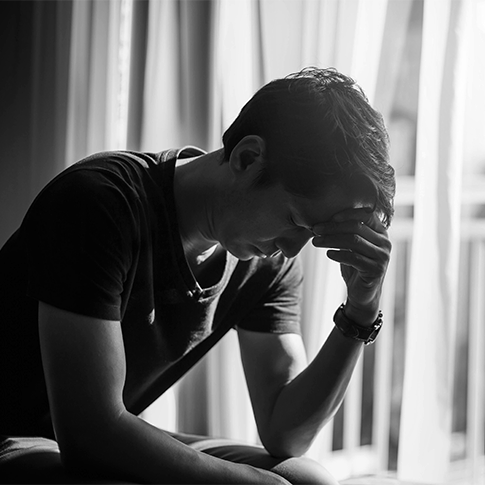Exposure & Voyeurism
Navigating Voyeurism Challenges with Confidence
Exposure and voyeurism are serious offences under the Sexual Offences Act 2003. Exposure involves intentionally revealing oneself in a manner likely to cause alarm or distress, while voyeurism pertains to secretly observing or recording others without their consent.
Both charges can have significant legal consequences, including potential imprisonment, registration on the sex offender register and damage to your reputation.
A deep understanding of the complexities of these charges is crucial. Our award-winning solicitors have extensive experience handling cases of this nature and provide an approach that ensures you receive the support you need throughout the legal process.
Our Approach
Every case is different which is why we always take a personalised approach. We take the time to listen to your story, analyse the evidence and tailor our defence strategy to your specific circumstances.
From the initial consultation to representation at court, we make sure you understand the details of your case and explain the legal options available to you. Our team will carefully examine all evidence, including witness statements and relevant materials, to challenge the claims, question the motives behind the allegations and identify any inconsistencies or weaknesses in the prosecution's case.
If you are facing false allegations of exposure or voyeurism, our advice is not to navigate this complex and challenging situation alone. Contact us for a confidential consultation. Our experienced team is here to guide you through every step of the legal process and fight for the best possible outcome.
For further information regarding allegations of voyeurism or exposure, please see our Frequently Asked Questions.
Testimonials
Exposure & Voyeurism FAQs
How can KANGS help?
Our team of specialist solicitors provide the following services:
- Initial Consultation and Legal Advice: Confidential consultation to discuss the case details, provide an initial assessment and advise on legal rights and options.
- Police interviews: representation during police interviews, ensuring our client's rights are protected.
-
- Representation at a voluntary interview under caution
- Representation at an interview under caution following arrest
- Preparation of pre-charge representations to the CPS or Police
- Representation in Magistrates’ Court and Crown Court proceedings
- Recommendations on selecting a barrister or King's Counsel (KC), as the cross-examination of the complainant and other prosecution witnesses often plays a pivotal role in court proceedings.
Contact KANGS
The expert lawyers at KANGS are available to assist you. We can arrange initial consultations in person, by video call or telephone.
Please contact one of our experts listed below or contact us at:
What is Voyeurism and Exposure? Both Offences Explained
Section 66 of the Sexual Offences Act 2003 makes it as an offence for someone to intentionally expose their genitals with the intent of causing alarm or distress.
Section 67 of the Sexual Offences Act 2003 makes it an offence for a person to observe another individual engaged in a private act, such as by peering through a window or peephole, viewing live images, or recording, for their own sexual gratification, knowing that the person being observed has not consented to being watched for this purpose.
Legislation
Section 66 details the offence of exposure.
(1) A person commits an offence if:
- he intentionally exposes his genitals, and
- he intends that someone will see them and be caused alarm or distress.
Section 67 details the offence of voyeurism.(1) A person commits an offence if:
- for the purpose of obtaining sexual gratification, he observes another person doing a private act, and
- he knows that the other person does not consent to being observed for his sexual gratification.
(2) A person commits an offence if:
- he operates equipment with the intention of enabling another person to observe, for the purpose of obtaining sexual gratification, a third person (B) doing a private act, and
- he knows that B does not consent to his operating equipment with that intention.
(3) A person commits an offence if:
- he records another person (B) doing a private act,
- he does so with the intention that he or a third person will, for the purpose of obtaining sexual gratification, look at an image of B doing the act, and
- he knows that B does not consent to his recording the act with that intention.
(4) A person commits an offence if he installs equipment or constructs or adapts a structure or part of a structure, with the intention of enabling himself or another person to commit an offence under subsection (1).
Assistance with interpretation
Section 68 assists to define a private act for the offence of voyeurism.
It is clarified that a person is doing a private act if the person is in a place which, in the circumstances, would reasonably be expected to provide privacy and –
- the person’s genitals, buttocks or breasts are exposed or covered only with underwear,
- the person is using a lavatory, or
- the person is doing a sexual act that is not of a kind ordinarily done in public.
For the section 67 offence (voyeurism), a structure is defined to include a tent, vehicle or vessel or other temporary moveable structure.
For the section 71 offence (in a public lavatory), an activity is described as sexual if a reasonable person would, in all the circumstances but regardless of any person’s purpose, consider it to be sexual.
What is the Court Procedure for Voyeurism?
Section 66 (exposure) and section 67 (voyeurism) offences are ‘either way’ offences meaning that they can be dealt with in either the Magistrates’ or the Crown Court. The maximum sentence available is that given in the Crown Court, being a term of imprisonment not exceeding two years.
The Section 71 offence (in a public lavatory) is a ‘summary’ only offence, meaning that it can only be dealt with in the Magistrates’ Court where the maximum sentence is one of six months imprisonment and/ or a level 5 fine.
Who can I contact for advice & help for exposure or voyeurism charges?
It is imperative that you instruct an experienced solicitor as soon as you become aware of an allegation being made. Crucially it is always important to have a solicitor present in interview at the police station whether it is an interview by appointment or under arrest.
Latest News & Insights
How Indecent Images are Categorised and Defined
Get in touch
Send an enquiry





